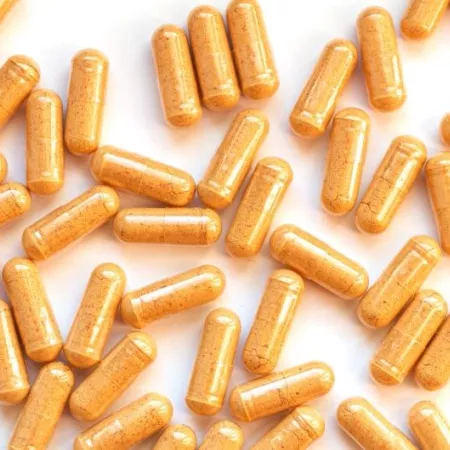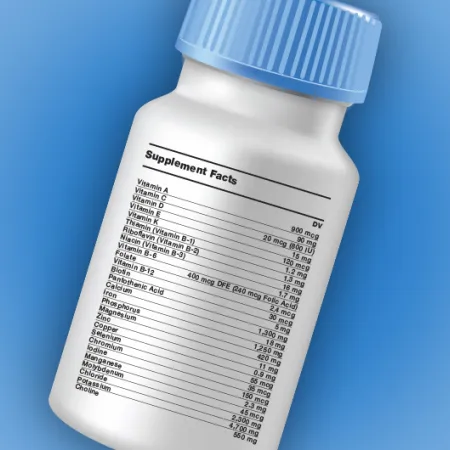Should you take a bovine colostrum supplement?

Diane - stock.adobe.com.
Bovine colostrum is the “it” supplement right now, with companies claiming that it can repair your gut and boost your immune system and athletic performance, all while improving your appearance. Wow! Spoiler: The evidence doesn’t match the hype.
What is bovine colostrum?
Colostrum is the milk all mammals produce in the first 24 to 72 hours after giving birth. “Bovine” means that it’s from cows. High in protein, antibodies, growth factors, and other nutrients, colostrum is a nutritional powerhouse for newborns and their undeveloped immune systems.
What does that have to do with adults?
“When you take ARMRA Colostrum™ you strengthen your body’s barriers, creating a tight seal that prevents threats from crossing into the bloodstream,” says the website of what is arguably the biggest name in bovine colostrum supplements. “It’s your best protection against everyday toxins, pollutants, allergens and processed ingredients, paving the way for optimal health and vitality.”
Can bovine colostrum heal a ‘leaky gut’?
In theory, if your intestines are more permeable than they should be (sometimes called a “leaky gut”), toxins, undigested food, microbes, etc., could make their way into your bloodstream and set off a cascade of reactions by your immune system, resulting in autoimmune problems like celiac disease or inflammatory bowel disease, metabolic disorders like obesity or type 2 diabetes, or anxiety, depression, and so on. In reality, it’s unclear if a more-permeable gut (or, in some cases, an over-reactive immune system) actually causes any of those health problems.
The majority of studies that have evaluated bovine colostrum’s ability to blunt gut permeability have been done in people doing strenuous exercise. Why?
A single bout of strenuous exercise like marathon running or long-distance cycling—especially when done in the heat—can temporarily increase markers of gut damage and permeability. That could explain why many athletes suffer from short-term GI complaints like stomach cramps, nausea, and diarrhea after doing strenuous exercise.
In one analysis of nine studies in people doing strenuous exercise who took colostrum for several weeks, most (but not all) reported some benefit on markers of gut permeability. But the studies were small, and nearly all were conducted in young men. And many of the studies were either company-funded or conducted by researchers who had received past compensation from colostrum-supplement makers. What’s more, the studies typically gave volunteers between 20 and 60 grams a day of colostrum. One scoop of ARMRA has only 1 gram of bovine colostrum. (You can “increase to 2-3 scoops as desired for further benefit,” says ARMRA’s label. But you still won’t get anywhere near the doses tested in the studies.)
Two studies also reported that about 60 grams a day of bovine colostrum can blunt markers of gut permeability in people who have undergone abdominal surgery or who are in hospital intensive care units (ICUs).
But those studies simply highlight that high doses of bovine colostrum might help people with known gut permeability problems. Despite claims from the wellness world that “leaky gut” is to blame for any number of health woes, there is no evidence that the average person suffers because of their gut permeability. So it’s not surprising that no studies have given bovine colostrum to healthy people and checked to see what happens to their gut.
Can bovine colostrum boost immunity against respiratory infections?
What about ARMRA’s claim that its supplements “leverage immune intelligence to protect, restore, and enhance complete immune health”?
In one analysis of six randomized trials that gave people bovine colostrum or a placebo every day for an average of about two months, colostrum lowered the risk of an upper respiratory tract infection (like a cold or the flu) by about 25 percent. But most of those studies were company-funded and gave volunteers enormous doses—roughly 10 to 60 grams per day.
The only study that looked at respiratory infections using doses similar to what ARMRA and other companies sell came up empty. Researchers randomly assigned 158 university students to take either a placebo or 1 gram of colostrum every day for 15 days and then 500 milligrams a day for the next 30 days. There was no difference in the number of colds or flu between the two groups. (The authors reported that they received no funding for the study, though one of the authors receives compensation from the maker of the bovine colostrum used in the study.)
Does bovine colostrum have other benefits?
No peer-reviewed studies have tested ARMRA’s supplements. Nonetheless, the company’s website claims that in “dual-arm, 3rd party clinical research of participants aged 18-65 taking ARMRA Colostrum daily for a period of 3 months,” 86 percent experienced less bloating, 79 percent grew thicker hair, and 80 percent improved their lean muscle mass, strength, and endurance. (The website also claims that colostrum can give you “healthier skin.”)
How many people were in that study? What was the other “arm” of the “dual-arm”? How was each outcome measured? Why wasn’t the study published? Who knows! ARMRA hadn’t answered those questions by our deadline.
No peer-reviewed trials have looked at bovine colostrum’s ability to promote hair growth or clear up acne. And while a handful of studies show that giving people large doses of bovine colostrum (20 to 60 grams a day) may modestly boost a few measures of muscle mass, strength, or power when combined with strength training, the results are inconsistent, and other studies find no benefit at all. And, here again, the studies were small and funded by the manufacturers, and the participants took doses that were vastly larger than what bovine colostrum supplements offer.
Bottom line
Most studies on bovine colostrum use doses far higher than what you’d get from a supplement and are largely funded by supplement makers. Even those studies report inconsistent evidence that bovine colostrum can prevent colds or the flu or boost strength. And studies on gut permeability have primarily looked at short-term effects after bouts of strenuous exercise in athletes, not at autoimmune disease or other illnesses. No peer-reviewed studies have tested ARMRA’s supplements.
Support CSPI today
As a nonprofit organization that takes no donations from industry or government, CSPI relies on the support of donors to continue our work in securing a safe, nutritious, and transparent food system. Every donation—no matter how small—helps CSPI continue improving food access, removing harmful additives, strengthening food safety, conducting and reviewing research, and reforming food labeling.
Please support CSPI today, and consider contributing monthly. Thank you.
More on supplements
9 easy ways to stay healthy during cold & flu season
Vaccines
By M.M. Bailey

Folic acid is the best choice for a healthy pregnancy
Fact vs. Fiction

FDA update: These supplements contain toxic yellow oleander
Supplements

Can creatine build bigger and stronger muscles?
Physical Activity

CA legislature passes bill to protect against toxic heavy metals in prenatal vitamins
Supplements


